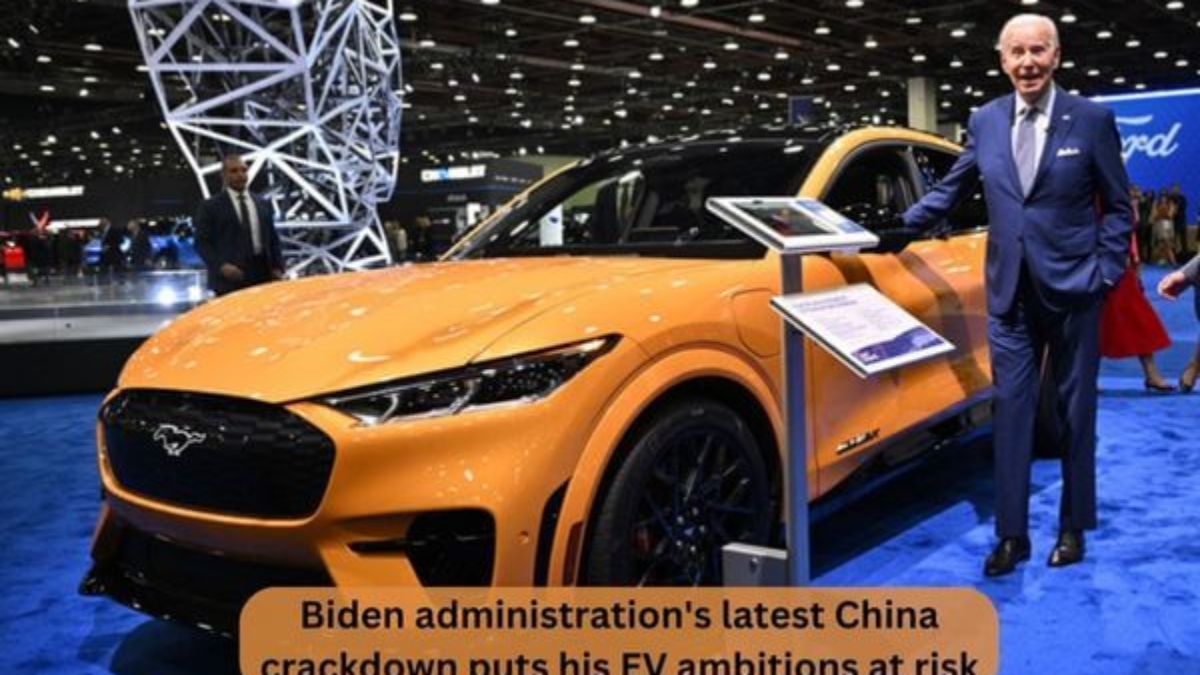By reducing the number of automobiles that qualify, the Biden administration’s requirements for electric vehicle tax credits, which tighten restrictions on Chinese imports, might impede the United States’ move away from fossil fuels.
The much-awaited guidelines regarding tax credit eligibility serve as a symbol of the complex path the Biden administration has had to take to further its aggressive climate agenda and challenge Chinese hegemony over batteries and vital minerals required to accelerate the shift to electric vehicles.
According to the regulations, a car cannot be eligible for a loan if even one of its suppliers has tenuous connections to Beijing, such as manufacturing parts in China or controlling up to 25% of the board seats. Under the new regulations, an American provider may in some cases not even be allowed to receive credit if they only use technology that has been licensed from China.
It happened months after a Treasury Department regulation on domestic manufacturing prevented many cars made by South Korean, Japanese, and European automakers from being eligible for the tax credit. Currently, less than one-fifth of the more than 100 vehicles available on the market—roughly 22 electric and plug-in hybrid cars—qualify for the credit.
How many of those vehicles will still be eligible when the new regulations go into force in January is unknown. Automakers like Ford, which plans to license Chinese battery technology for a plant in Michigan, will need to reevaluate whether they can sell their cars with the tax incentive attached. The strict regulations are a win for China hawks aiming to reduce U.S. reliance on the nation.
President Joe Biden administration’s climate strategy is centered on encouraging Americans to use electric vehicles, and his main tool for this purpose is the tax credit. It can reduce the cost of an electric car by up to $7,500, making them accessible to a wider group of drivers.
But the Inflation Reduction Act of last year, passed by Democrats in Congress, included several increasingly stringent domestic content regulations designed to keep China out of the American electric vehicle supply chain.
Administration officials expressed confidence that automakers would be able to meet the new rules, pointing out the billions of dollars they are investing in new U.S. manufacturing facilities, even though China still dominates that supply chain for key parts of the vehicles — particularly the batteries used to power them.
Deputy Treasury Secretary Wally Adeyemo told reporters, “Automakers have already adjusted the supply chain to ensure buyers are eligible for these credits and are continuing to do so.” “These changes take time, but American consumers are purchasing these cars and businesses are investing in them.”
The regulations also provide some of the flexibility that the automakers had requested, such as a two-year phase-in time for the regulation of some hard-to-trace battery materials used in their electric vehicles.
Democrats in Michigan were quick to applaud the Biden administration’s strategy, but Republican China hawks denounced it.
The Select Committee on the Chinese Communist Party is chaired by Representative Mike Gallagher (R-Wis.), who stated in a statement that the “naive new regulations would open the floodgates for American tax dollars to flow to Chinese companies complicit in trade violations and forced labor abuses.”
Sen. Joe Manchin (D-WV), a Democrat and one of the credit’s main authors, was incensed by the rule’s concessions to automakers. On Friday, he made a threat to support a lawsuit against the regulation and introduce a Congressional Review Act resolution to overturn it.
Manchin released a statement saying, “This administration is, once again, trying to find workarounds and delays that leave the door wide open for China to benefit off the backs of American taxpayers.” “I will use every channel available to me to undo this illegal and deplorable proposed rule and safeguard our energy security.”
However, Sen. Debbie Stabenow (D-Mich.) applauded the administration for taking the necessary steps to keep encouraging the adoption of electric vehicles within legal constraints.
Industry representatives applauded the regulations as well.
Albert Gore III, executive director of the Zero Emission Transportation Association, stated, “It’s a strict rule that’s done thoughtfully and in a way that is workable for the industry.”
Gore stated that while “no possible interpretation” was likely to keep every model currently eligible on the list, he did anticipate that the rule would, at least temporarily, reduce the number of models eligible for the federal credit.
“When you introduce requirements such as these, there’s a high probability that some models will quit,” Gore stated. “Given that supply chains are not like light switches, that is completely expected and normal.”
Assuring that “the list of eligible vehicles won’t completely disappear in 2024 (which was a real worry),” the guidelines strike “a pragmatic balance,” according to a statement from John Bozzella, CEO of the Alliance for Automotive Innovation, which represents the majority of automakers worldwide.
In a statement, General Motors stated that although it is “well positioned to maintain the consumer purchase incentive for many of our EVs in 2024 and beyond,” it is still evaluating the rule.
The regulations are “detailed and extensive,” according to a statement from Ford, which also stated that it is evaluating how they may affect its cars and the Michigan battery park.
The foreign automakers’ trade association, Autos Drive America, is led by Jennifer Safavian, president and CEO, who expressed gratitude in a statement for the “flexibility” the guidelines give automakers in utilizing the credit.
“This shift will take time, even though automakers in the U.S. are working to diversify their sourcing and strengthen their domestic supply chains,” Safavian added.
The new regulations, some of which go into effect in January, are timely given the US’s rapidly declining rate of EV adoption. In recent months, the three biggest American automakers—Tesla, GM, and Ford—have all reduced their projections for electric vehicle (EV) production, blaming rising borrowing costs and declining consumer demand. On the Hill and throughout the presidential campaign, Republicans are intensifying their criticism of the Biden administration’s drive for electric vehicles.

